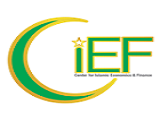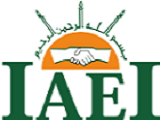Strategy for Optimizing Zakat Digitalization in Alleviation Poverty in the Era of Industrial Revolution 4.0
Abstract
ABSTRACT
The era of innovation is disrupted providing space in the development of digital zakat management systems that are expected to increase public trust and make it easier for muzaki to pay zakat. The management of digital zakat is expected to increase the efficiency and efficiency of services in the management of zakat and increase zakat benefits to realize public welfare and poverty reduction. The research method used is descriptive qualitative with SWOT analysis techniques to analyze corporate strategy factors (strengths, weaknesses, opportunities and threats). This study found a strategy to optimize zakat through the improvement of governance systems and information on zakat-based digitalization institutions. In addition, the information system for mustahik and muzaki database needs to be improved in order to optimize the collection and distribution of zakat.
Keywords: Zakat, Optimization, Digital
Keywords
Full Text:
PDFReferences
Ahmad Syafiq. (2014). Prospek Zakat dalam Perekonomian Modern. Zakat Dan Wakaf.
Al Arif, M. N. R. (2015). Optimalisasi Peran Zakat dalam Memberdayakan Perekonomian Umat. ULUL ALBAB Jurnal Studi Islam. https://doi.org/10.18860/ua.v0i0.2320
Andriyanto, I. (2014). Pemberdayaan Zakat Dalam Meningkatkan Kesejahteraan Umat. Zakat Dan Wakaf. https://doi.org/10.1086/501693
Antoni, A. (2018). KEJAHATAN DUNIA MAYA (CYBER CRIME) DALAM SIMAK ONLINE. Nurani: Jurnal Kajian Syari’ah Dan Masyarakat. https://doi.org/10.19109/nurani.v17i2.1192
Arifah, D. A. (2011). Kasus cybercrime di indonesia. Jurnal Bisnis Dan Ekonomi, 18(2).
Chaniago, S. A. (2017). PEMBERDAYAAN ZAKAT DALAM MENGENTASKAN KEMISKINAN. JURNAL HUKUM ISLAM. https://doi.org/10.28918/jhi.v13i1.495
Fauzan, R. (2018). Karakteristik Model dan Analisa Peluang-Tantangan Industri 4.0. PHASTI, 4(01), 1–11. Retrieved from https://ejournal.polihasnur.ac.id/index.php/pha/article/view/271
Furqani, H., Mulyany, R., & Yunus, F. (2019). Zakat for Economic Empowerment (Analyzing the Models, Strategy and Implications of Zakat Productive Program in Baitul Mal Aceh and Baznas Indonesia). IQTISHADIA. https://doi.org/10.21043/iqtishadia.v11i2.3973
Hakim, B. R. (2017). Analisis Terhadap Undang-Undang Nomor 23 Tahun 2011 Tentang Pengelolaan Zakat (Perspektif Hukum Islam). Syariah Jurnal Hukum Dan Pemikiran, 15(2). https://doi.org/10.18592/syariah.v15i2.552
Hermann, M., Pentek, T., & Otto, B. (2016). Design principles for industrie 4.0 scenarios. In Proceedings of the Annual Hawaii International Conference on System Sciences. https://doi.org/10.1109/HICSS.2016.488
Indriyanti, A. D. (2017). Perancangan Sistem Informasi Pengelolaa Zakat Personal Berbasis Web. Inovate: Jurnal Ilmiah Inovasi Teknologi Informasi, 2(2).
Jajuli, S. (2014). Strategi Pembedayaan Zakat Produktif (Studi BAZ Kabupaten Sukabumi Jawa Barat). Misykat Al Anwar.
Khalifah, M. H., Nurzaman, M. S., & Nafis, M. C. (2017). Optimization of BAZNAS Programs on Sustainable Development Goals (SDGs): Analytic Network Process Approach (ANP). International Journal of Zakat, 2(2), 71–83.
Kominfo. (2013). Kominfo : Pengguna Internet di Indonesia 63 Juta Orang. Website Resmi Kementerian Komunikasi Dan Informatika RI.
Maidoki, M. L. (2018). Repositioning SOZECOM, Nigeria for Navigating the Digital Economy. International Journal of Zakat, 3(3), 101–107.
Manara, A. S., Permata, A. R. E., & Pranjoto, R. G. H. (2018). Strategy Model for Increasing the Potential of Zakat through the Crowdfunding-Zakat System to overcome Poverty in Indonesia. International Journal of Zakat, 3(4), 17–31.
Mukhtar, P. D., & Pd, M. (2013). Metode Praktis Penelitian Deskriptif Kualitatif. Jakarta: GP Press Group.
Nisak, Z. (2004). Analisis Swot Untuk Menentukan Strategi Kompetitif. Analisis Swot Untuk Menentukan Strategi Kompetitif. https://doi.org/10.1038/sc.1991.24
Pamuncak, M. B., Possumah, B. T., & Hamid, Z. A. (2018). IFRS Based Zakat Reporting: Adoption Rational Western Method Into Institutional Accountability. Ikonomika: Jurnal Ekonomi Dan Bisnis Islam, 3(1), 17–34. https://doi.org/https://doi.org/10.24042/febi.v3i1.2512
Prasetyo, H., & Sutopo, W. (2018). INDUSTRI 4.0: TELAAH KLASIFIKASI ASPEK DAN ARAH PERKEMBANGAN RISET. J@ti Undip : Jurnal Teknik Industri, 13(1), 17. https://doi.org/10.14710/jati.13.1.17-26
Pratama, Y. C. (2015). PERAN ZAKAT DALAM PENANGGULANGAN KEMISKINAN ( Studi Kasus : Program Zakat Produktif Pada Badan Amil Zakat Nasional ). The Journal of Tauhidinomics.
Purnamasari, D. (2017). Analisis Strategi Penghimpunan Zakat Dengan Pendekatan Business Model Canvas. Human Fallah, Volume 4. Retrieved from http://jurnal.uinsu.ac.id/index.php/humanfalah/article/view/1047
Pusat Kajian Strategis - Badan Amil Zakat Nasional. (2019). Outlook Zakat Indonesia 2019. Pusat Kajian Strategis – Badan Amil Zakat Nasional (PUSKAS BAZNAS). Retrieved from https://puskasbaznas.com/publications/books/900-indonesia-zakat-outlook-2019
Rachman, M. A., & Salam, A. N. (2018). The Reinforcement of Zakat ManagementthroughFinancial Technology Systems. InternationalJournal of Zakat.
Rangkuti, F. (1998). Analisis SWOT teknik membedah kasus bisnis. Gramedia Pustaka Utama.
Rizky Haniefah, F., & Faozan, A. (2018). THE OPTIMIZATION OF THE ROLE OF ZAKAT IN THE ALLEVIATING POVERTY IN INDONESIA. Journal of Economicate Studies (Vol. 2). https://doi.org/10.32506/joes.v2i2.470
Saadah, N. (2018). Perencanaan Keuangan Islam Sederhana dalam Bisnis E-Commerce pada Pengguna Online Shop. Economica: Jurnal Ekonomi Islam. https://doi.org/10.21580/economica.2018.9.1.2593
Shaikh, S. A. (2018). Capitalizing on Economic Function of the Institution of Zakāt in Modern Economy. International Journal of Zakat, Vol.3, 33–49. Retrieved from https://ijazbaznas.com/index.php/journal/article/view/105
Suryana, Sugiyono, Sekaran, U., Lee, S., Stearns, T., & Geoffrey, G. M. (2013). Metode Penelitian Kuantitatif, Kualitatif, dan R&D. International Journal of Management.
Zumrotun, S. (2017). PELUANG, TANTANGAN DAN STRATEGI ZAKAT DALAM PEMBERDAYAAN EKONOMI UMAT. JURNAL HUKUM ISLAM. https://doi.org/10.28918/jhi.v0i0.669
DOI: http://dx.doi.org/10.24042/febi.v4i1.3942
Refbacks
- There are currently no refbacks.
Copyright (c) 2019
Ikonomika : Jurnal Ekonomi dan Bisnis Islam is a Journal of Islamic Economics and Business, Published by the Faculty of Islamic Economics and Business at UIN Raden Intan Lampung Indonesia. This work is licensed under a Creative Commons Attribution-ShareAlike 4.0 International License.






11.png)


